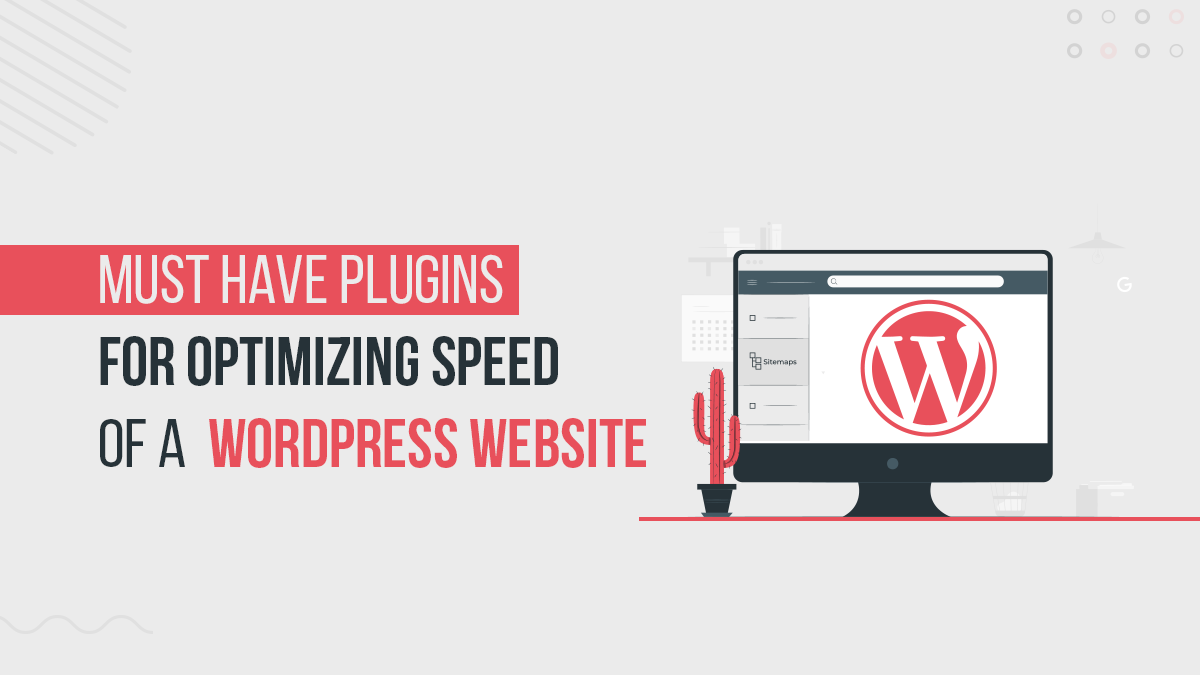WordPress is one of the most popular content management systems out there. Businesses often use it to create and maintain websites that offer information and services. According to a Kinsta survey, 40% of websites on the Internet are based on WordPress. This is quite significant compared to the global shares of competitor sites like Wix (1.6%) and Joomla (2.6%), respectively.
Despite all the effort that teams or individuals put into developing rich and multifaceted WordPress sites, one thing that can inevitably ruin the user experience is site speed, or rather the lack of it. A previous article discussed why website speed is important to businesses and why website speed optimization should not be avoided.
This article investigates how WordPress users can speed up their websites by taking advantage of WordPress speed optimization plugins.
Top Plugins To Speed Up WordPress
W3 – Total Cache for effective caching
W-3 Total Cache is a highly preferred plugin among website developers and the WordPress community. This advanced plugin improves website performance by significantly reducing page load time by taking advantage of the CDN integration.
This also translates to better SEO and a better user experience. Due to its benefits, this free plugin is trusted by millions of publishers around the world.
The WordPress Speed Optimization Plugin offers the following benefits:
- Improved page ranking in search engines, especially for mobile-optimized sites
- Faster rendering of the pages leads to an improvement of at least 10 times in the overall performance of the site.
- Bandwidth savings of up to 80%
- Longer time of visitors on site, leading to more conversions
WP Super Minify for compressing HTML, CSS, Javascript files
It is obvious that files with compact sizes load faster. WP Super Minify helps speed up page loading by combining, minimizing, and caching HTML, inline CSS, and JavaScript files. The installation of this plugin is very simple.
Just download the plugin, upload it to the file directory and activate it through the ‘Plugins’ menu in WordPress.
WP Smush for optimizing images
Images make content more meaningful and attractive. They are an integral part of the websites. However, high-resolution images tend to have larger files, which in turn slows down the website. WP Smush is an award-winning plugin recognized for image compression. Helps reduce the overall size of images without degrading their visual quality.
WP Smush is an ideal plugin for over a million WordPress users for the following reasons:
- Supports all standard image formats like JPEG, PNG and GIF
- Remove metadata and unused colors from images.
- It offers compatibility with other plugins and compresses all the images in the directory.
- In case there are multiple images to add, you can optimize 50 images at a time
Incorporating Lazy Load using Lazy Load by WP Rocket
The natural behavior of a website includes loading all content on a page automatically when a user visits the website for the first time. If the web page has long content with multiple images, naturally the loading time will be slower.
An effective way to solve this problem is to use lazy loading. It is a technique that loads only the images in the first fold of the visitor’s browser window. This ensures that the page does not load the content all at once. For example, if a web page has ten images listed, only the first ones will load initially and the rest will load as the user scrolls down.
Lazy load by WP Rocket is a free plugin that makes it possible for WordPress users. It is a highly recommended plugin that reduces HTTP requests to increase the initial load time.
Optimizing WordPress Database using WP-Optimize
Every time a WordPress user adds a new post, WordPress creates a review for the same page or post. For example, if a blogger edits a post four times, WordPress creates three copies of the same post as reviews. This leads to the inefficiency of the database.
Also, a blog with multiple posts may have received multiple spam messages and unapproved comments in the comment section. WP-Optimize helps solve this problem by eliminating unnecessary reviews that result in slow and bloated access.
It also helps users identify which table in the database contains unnecessary data. This helps clean up the comment table, removing all spam and unapproved comments, thus cleaning up memory space.
WP-Optimize also offers features like image caching and compression. This makes it a must-have and universal plugin for WordPress users.
In addition to just using plugins, teams should also consider incorporating the following technical enhancements:
- Improving server response time
- Reduce redirects
- Use a CDN to provide ultra-fast page speeds for visitors from different geographic regions
Once the WordPress user has made the necessary optimizations, it is vital to test the results. To do this, teams must use a website speed test tool to test page load times on a variety of real devices and browsers. This will help them evaluate your optimization efforts.
WordPress has evolved as a highly preferred content management system over the years for creating and maintaining websites. For a WordPress site to deliver impressive results, it’s critical to optimize it for speed. The plugins listed above, when properly incorporated, will significantly improve the user experience on WordPress sites.
